Happy Tuesday! It appears that Bay Area techies are trying to find love by leaving notes in the seats of self-driving taxis. We sense the next Netflix rom-com in the making.
Quick Hits: Today’s Top Stories
- El Salvadoran President Nayib Bukele said Monday that he would not return Kilmar Abrego Garcia—an immigrant who was deported to an El Salvador prison due to an “administrative error” last month—to the United States. “How can I return him to the United States? Like if I smuggle him into the United States?” Bukele said during an Oval Office visit, claiming that he had “no power” to return Garcia, who is a Salvadoran national. The Supreme Court upheld a lower court ruling requiring the U.S. government to “facilitate” Abrego Garcia’s return last week, but the Trump administration has argued the decision over whether to expatriate the detainee lies with El Salvador.
- Cody Balmer, the Pennsylvania man facing charges connected to an arson attack at Pennsylvania Gov. Josh Shapiro’s residence, is being treated at a hospital for an unrelated medical event, according to police. While the motives for the attack remain unclear, court documents have shown that Balmer told police he planned on beating Shapiro with a hammer after breaking into the mansion. His mother told reporters Monday that Balmer had bipolar disorder and schizophrenia, but was not taking his medication. Politicians of both parties condemned the attack, with Republican Sen. Dave McCormick of Pennsylvania calling it an “assault on democracy.”
- Meta CEO Mark Zuckerberg testified Monday in an antitrust trial, the first held under President Donald Trump’s Federal Trade Commission, in which government lawyers accused Meta of establishing a monopoly over social media. By acquiring the social media platforms Whatsapp and Instagram while they were still start-ups, Meta established a monopoly over the market for social networking, FTC lawyers said. In defense of his company, Zuckerberg testified that the social media market was larger than the government’s definition of demand for services that connect friends and family. Zuckerberg also argued that Meta, which owns Facebook, faced competition from companies like TikTok.
- Harvard University said Monday that it would refuse to comply with a list of Trump administration demands that it make significant reforms to its governance and operations. An administration task force charged with investigating allegations of antisemitism across dozens of American universities made extensive demands of Harvard, including ending all diversity and inclusion programs, submitting to external audits of a range of departments, and refusing admission to international students “hostile to American values.” The Trump administration threatened to pull roughly $9 billion in federal grants and funding if these conditions were not met. Following Harvard’s statement on Monday, the White House announced plans to freeze more than $2 billion in multi-year grants to the Ivy League university.
- In a Sunday post on Truth Social, President Trump wrote that he had a “hope” that the Federal Communications Commission would block the merger of CBS parent Paramount Global with Skydance Media, after he was apparently angered by an episode of CBS’ 60 Minutes, which included reports on Ukraine and Greenland, that aired over the weekend. “Hopefully, the Federal Communications Commission (FCC), as headed by its Highly Respected Chairman, Brendan Carr, will impose the maximum fines and punishment,” wrote Trump, after recounting his unrelated and ongoing suit against CBS and 60 Minutes.
‘You Have to Imprison Some’
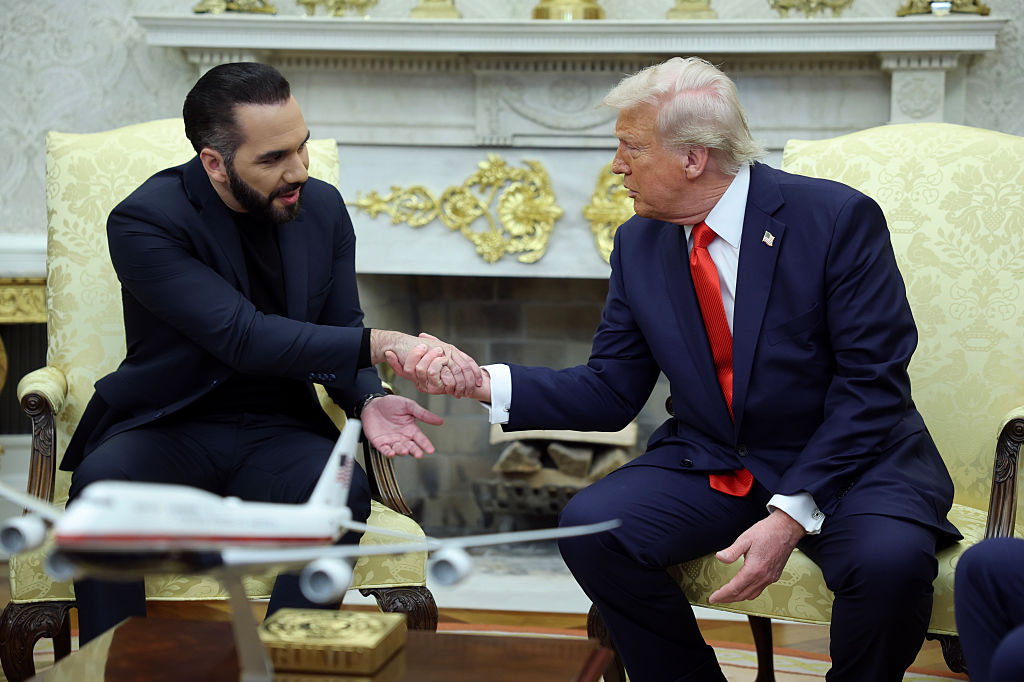
Speaking from the Oval Office on Monday, Nayib Bukele—El Salvador’s 43-year-old president and the architect of its mass incarceration scheme—offered words of advice to his American counterpart. “Sometimes they say that we imprisoned thousands. I like to say that we actually liberated millions,” he said of his country’s crackdown on gang violence. “Mr. President, you have 350 million people to liberate. But to liberate 350 million people, you have to imprison some.”
And Bukele appears more than willing to help Donald Trump in the process. The Salvadoran president, the first Latin American leader to receive an invitation to the Oval Office during Trump’s second term, found himself at the center of America’s immigration debate after opening his sprawling prison system to deportees from the United States. But Bukele is an ally of both opportunity and ideology. Since taking office in 2019, the young president has attracted the praise of Trump’s inner orbit for successfully ridding his country of rampant gang violence.
But critics warn that the crackdown came at a high cost: Bukele has marginalized his political opponents, undermined due process, and flouted court orders. Now, some fear he may be helping the Trump administration to do the same.
Last month, Trump ordered the transport of hundreds of immigrants—and alleged gang members—to El Salvador’s largest prison complex, the Terrorism Confinement Center, or CECOT. Among them was Kilmar Abrego Garcia, a Salvadoran national who the Justice Department later said had been deported due to an “administrative error.” As we recounted earlier this month:
While seeking work in a Home Depot parking lot in 2019, Abrego Garcia was picked up by police under suspicion of gang affiliation and subsequently transferred to ICE to be deported. … But the judge did not convict him of being a gang member. They simply reviewed the evidence cited by ICE, which immigration case law requires to be considered “inherently trustworthy” unless positively proven otherwise.
No criminal charges were ever brought against Abrego Garcia, and in October 2019, an immigration judge granted him “withholding from removal” protection on the grounds that he’d been fleeing gang threats and would face persecution if he were deported. Abrego Garcia was released from ICE detention after the judge’s order. Before and since his detention, he has had no criminal record beyond some traffic violations. He is married to an American citizen and has a 5-year-old child with her.
Upholding a lower court’s ruling, the Supreme Court last week directed the government to “facilitate” Abrego Garcia’s return to the United States. But the administration has yet to do so, arguing it lacks the authority to order a foreign country to expatriate its own citizen—and that the lower court order compelling it to do so runs afoul of the separation of powers.
Bukele helped the Trump team strengthen its case during his White House visit. Asked whether he would facilitate Abrego Garcia’s return on Monday, he responded: “Of course I’m not going to do it,” arguing that it would be akin to smuggling “a terrorist into the United States.” The government has accused Abrego Garcia of being a member of the MS-13 gang, an allegation he and his lawyer dispute.
U.S. officials, meanwhile, continued to assert that the issue was out of their hands. “That’s up to El Salvador if they want to return him. That’s not up to us. The Supreme Court ruled that if El Salvador wants to return him … we would facilitate it: meaning, provide a plane,” Attorney General Pam Bondi said from the Oval Office, offering the administration’s interpretation of the Supreme Court’s order.
But scrutiny over the mistaken deportation did not stop Trump from exploring new ways to partner with El Salvador in cracking down on crime. At one point during Bukele’s visit, Trump indicated that “homegrown criminals” could be next, adding that the administration is exploring the legality of detaining U.S. citizens and permanent residents in the country’s prison system.
The Trump administration may regard Bukele as something of an inspiration. The former San Salvador mayor rose to power promising to usher in a “new era” in the Central American country long beset by corruption and gang violence. And in many ways, he delivered. Under Bukele’s leadership, El Salvador has transformed from the “murder capital of the world” to one of the safest countries in the Western Hemisphere. In 2015, the country recorded some 103 homicides per 100,000 people. In 2024, that figure had dropped to 1.9 homicides per 100,000—lower than any other Latin American country’s recorded murder rate in 2023.
But the reduced crime came at a high price. El Salvador now has the world’s highest incarceration rate, and human rights groups argue many innocent people have been swept up in the mass detentions. In 2022, Bukele declared a state of emergency to detain suspected gang members without warrants—and it remains in effect today. A year later, he opened the doors to CECOT. The largest prison in Latin America and one of the largest in the world, it can hold up to 40,000 inmates. A 2023 report by the State Department detailed arbitrary arrests, extrajudicial killings, and inhumane conditions in pursuit of the Salvadoran government’s crime crackdown.
Still, Bukele enjoys widespread popularity among his people. In 2024, he won reelection with nearly 84 percent of the vote. (His second term came despite El Salvador’s constitutional ban on consecutive second terms, after the Supreme Court—largely populated by Bukele loyalists—ruled that he could run for office again.)
A publicist-turned-populist, Bukele is one of the 21st century leaders to rise to prominence with the help of social media. Since taking office, he has marketed El Salvador as a “land of surf, volcanoes, and coffee.” He has also signaled that, after a long period of internal strife, El Salvador is now open for investment. “Now we can grow faster, offer better infrastructure, and generate a fertile ground for companies,” the president said in February.
The branding has won Bukele the support of not just his own people but also many on the MAGA right. He first began forging ties with the movement during the first Trump administration. In March 2019, he delivered a speech before the Heritage Foundation in Washington, D.C.—his first public address since being elected the previous month. In turn, several Trump allies—including Donald Trump Jr. and former Florida Rep. Matt Gaetz—attended his second inauguration last year.
The administration’s partnership with Bukele is likely to grow, as Trump looks to Bukele as both an ally and as a leader who has achieved sweeping changes in his country.
“We didn’t tolerate being told what to do. In doing so, we did the unthinkable. We transformed El Salvador from the most dangerous country in the world to the safest in the Western hemisphere,” Bukele declared at the 2024 Conservative Political Action Conference. “The people of El Salvador have woken up, and so can you.”
Today’s Must-Read

Radio Silence
Toeing the Company Line
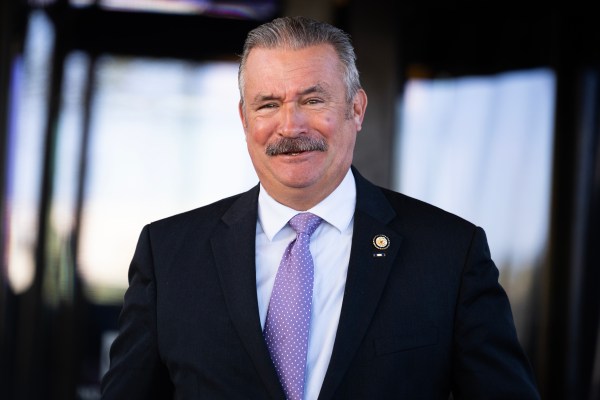
Is Don Bacon a ‘Rebel Republican’?

It’s Time to Pay Kidney Donors
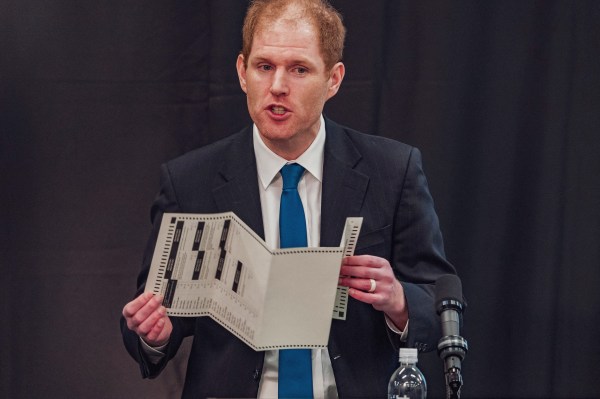
Will 2026 Be a 2020 Redux?

Assessing Claims Made in Alex Jones’ Interview With Tucker Carlson
Worth Your Time
- Writing for Pirate Wires, Trae Stephens argued that the Trump administration’s aim of reshoring manufacturing and defense production elides a critical factor: automation. “But tariffs aren’t enough. A concrete equipment construction factory in, say, Youngstown, might see a short-term spike in demand thanks to artificially reduced foreign competition. But that factory’s long-term economic competitiveness depends on production-side improvements: it has to turn out products faster and cheaper. And the only way to do that is by leaning hard into automation,” he wrote. “Patriotism demands we go all-in on robots and AI in manufacturing. More than any treaty or tariff, automation is what will keep us ahead of the world’s foremost authoritarian menace. Fighting automation isn’t just bad economics — it’s a surefire way to ensure America loses the battle for the 21st Century.”
- M. Anthony Mills and TMD alum Price St. Clair examined the changing politics of science in Issues in Science and Technology. “The idea that distrust in science is due simply to ignorance—or a ‘deficit’ of information—has been especially alluring to many members of scientific, educational, and media institutions because it presupposes that what needs fixing lies not with those institutions but rather with ignorant others. Although this framing has long been discredited by scholars, it persists in part because these same institutions are uniquely well-positioned to supply more information. Yet distrust is a relational concept—it calls for repair, not more information. Efforts to fill the void left by distrust with more information are therefore unlikely to succeed; they also run the risk of aggravating the underlying cause of distrust,” they wrote. “From this point of view, what is remarkable is not that some of us distrust abstract systems more than others, but rather that most of us do trust them most of the time. The question is, why? How do modern societies maintain social trust given the centrality of abstract systems, which demand faceless commitments?”
Presented Without Comment
The Financial Times: EU Issues U.S.-Bound Staff With Burner Phones Over Spying Fears
In the Zeitgeist
If you like the sound of a sonorous Midwestern man singing over electronic music, you’ve probably had a good week. Bon Iver’s new album SABLE, fABLE dropped last week, and he put out the official music video for “There’s a Rhythm/ Au Revoir” over the weekend. Happy napping!
Let Us Know
Is it possible for countries beset by gang violence to balance human rights and security?


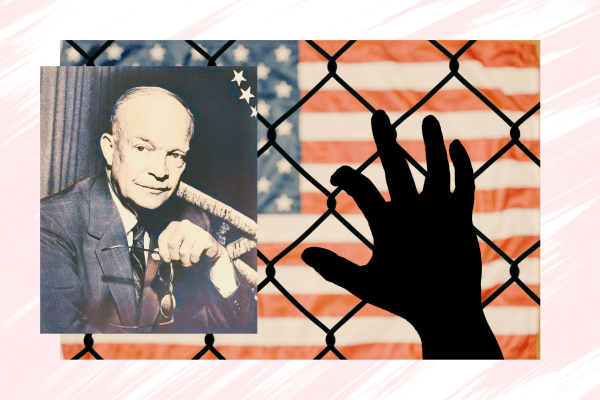
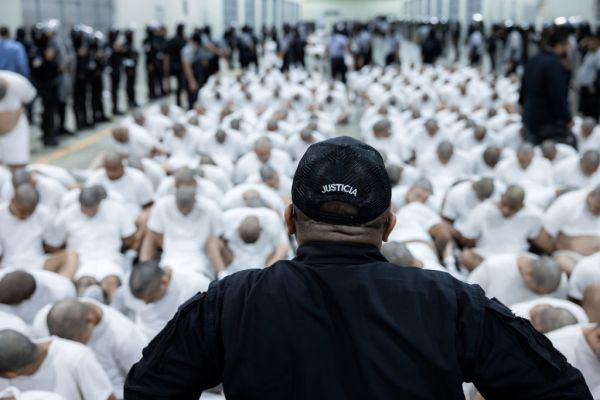
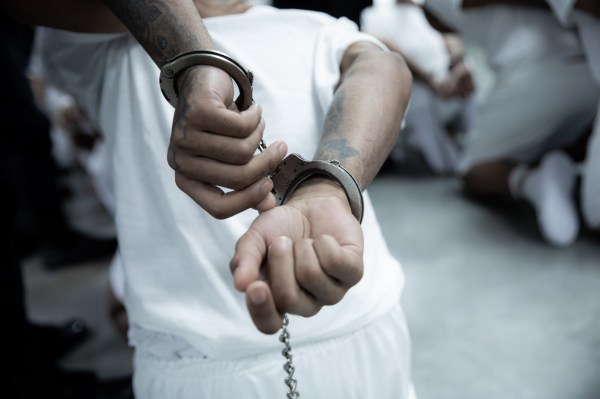
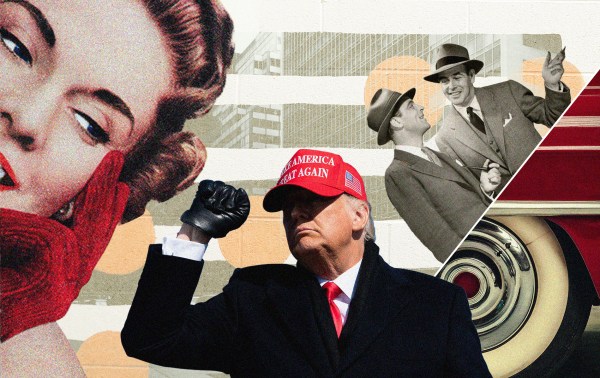


Please note that we at The Dispatch hold ourselves, our work, and our commenters to a higher standard than other places on the internet. We welcome comments that foster genuine debate or discussion—including comments critical of us or our work—but responses that include ad hominem attacks on fellow Dispatch members or are intended to stoke fear and anger may be moderated.
With your membership, you only have the ability to comment on The Morning Dispatch articles. Consider upgrading to join the conversation everywhere.